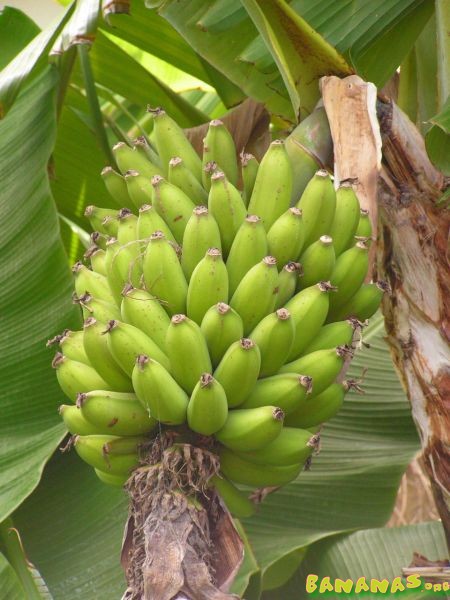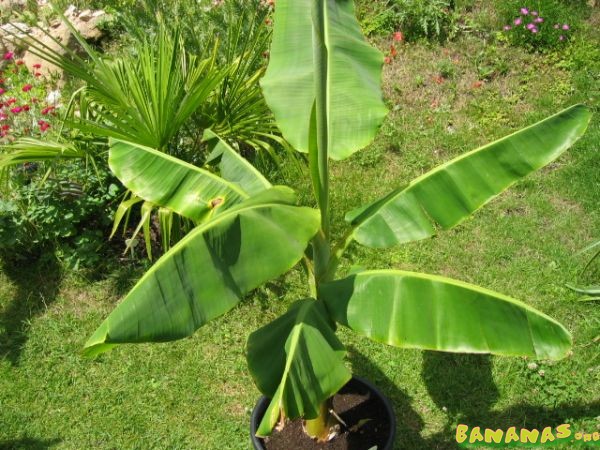Musa Rajapuri
From Bananas Wiki
| Revision as of 08:25, 17 June 2007 (edit) Dombo (Talk | contribs) (→Pictures) ← Previous diff |
Revision as of 07:33, 8 July 2007 (edit) Gard (Talk | contribs) (→Description) Next diff → |
||
| Line 39: | Line 39: | ||
| plant to grow in marginal areas or where a grower does not intend to put much care into the cultivation | plant to grow in marginal areas or where a grower does not intend to put much care into the cultivation | ||
| of bananas. The heads of fruit are of moderate size with medium sized fruit. | of bananas. The heads of fruit are of moderate size with medium sized fruit. | ||
| - | This tasty banana is very cold hardy but [[Info:Choking|chokes]] easier than Orinoco and the leaves will not turn yellow | + | This tasty banana [[Info:Choking|chokes]] easier than Orinoco. It is very cold hardy, and the leaves will not turn yellow |
| even with a light frost. It will grow and produce even in the pooriest soil. | even with a light frost. It will grow and produce even in the pooriest soil. | ||
| Not recommended for South Florida due to [[Black Sigatoka]]. The fruit can be used fresh or green. | Not recommended for South Florida due to [[Black Sigatoka]]. The fruit can be used fresh or green. | ||
Revision as of 07:33, 8 July 2007
Contents |
Cultivar Name
Musa 'raja puri'
Synonyms
Pictures

(credit the flying dutchman)

(credit Gabe15)

(credit Gabe15)
(credit Dombo)
(credit Dombo)
(credit Dombo)
Description
The 'Rajapuri' is small at 6 to 8 feet tall. This plant that originated from India is a first choice for landscaping. The plant is totally green, has a very thick stem and stands up very well to wind. The leaves are wider than those of most bananas, growing up to 3 feet wide. It is the best plant to grow in marginal areas or where a grower does not intend to put much care into the cultivation of bananas. The heads of fruit are of moderate size with medium sized fruit. This tasty banana chokes easier than Orinoco. It is very cold hardy, and the leaves will not turn yellow even with a light frost. It will grow and produce even in the pooriest soil. Not recommended for South Florida due to Black Sigatoka. The fruit can be used fresh or green.
- Genetic Group -
AAB
Origin
India
- Date realized in trade -
Usage
Desert banana
Flowering
- Time To Bloom -
- Time To Harvest -
Cultivation
- Mature Height -
8-10
- Survival Zone -
8-9
- Fruiting Zone -
- Cold Hardiness General -
Good cold tolerance
- Cold Hardiness Personal -
- Wind -
Wind tolerate
- Sun -
Full sun
- Taste Description -
- Personal Notes -
- Growth tips -
Known Afflictions
- Pests -
Borers, grasshopper and root nematodes
- Susceptible Diseases -
Panama disease and black sigatoka
- Resistant Diseases -
Research Notes
- Links to useful discussion threads in the forum:
- Typical Price Range -
Members Growing This Banana
External
- Links
- (Links to other useful pages on the web that mention this banana. Example: International Banana Society)
- Sources



